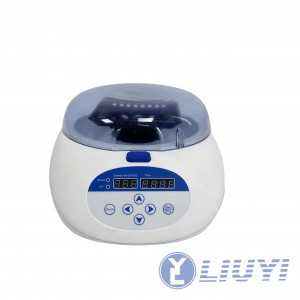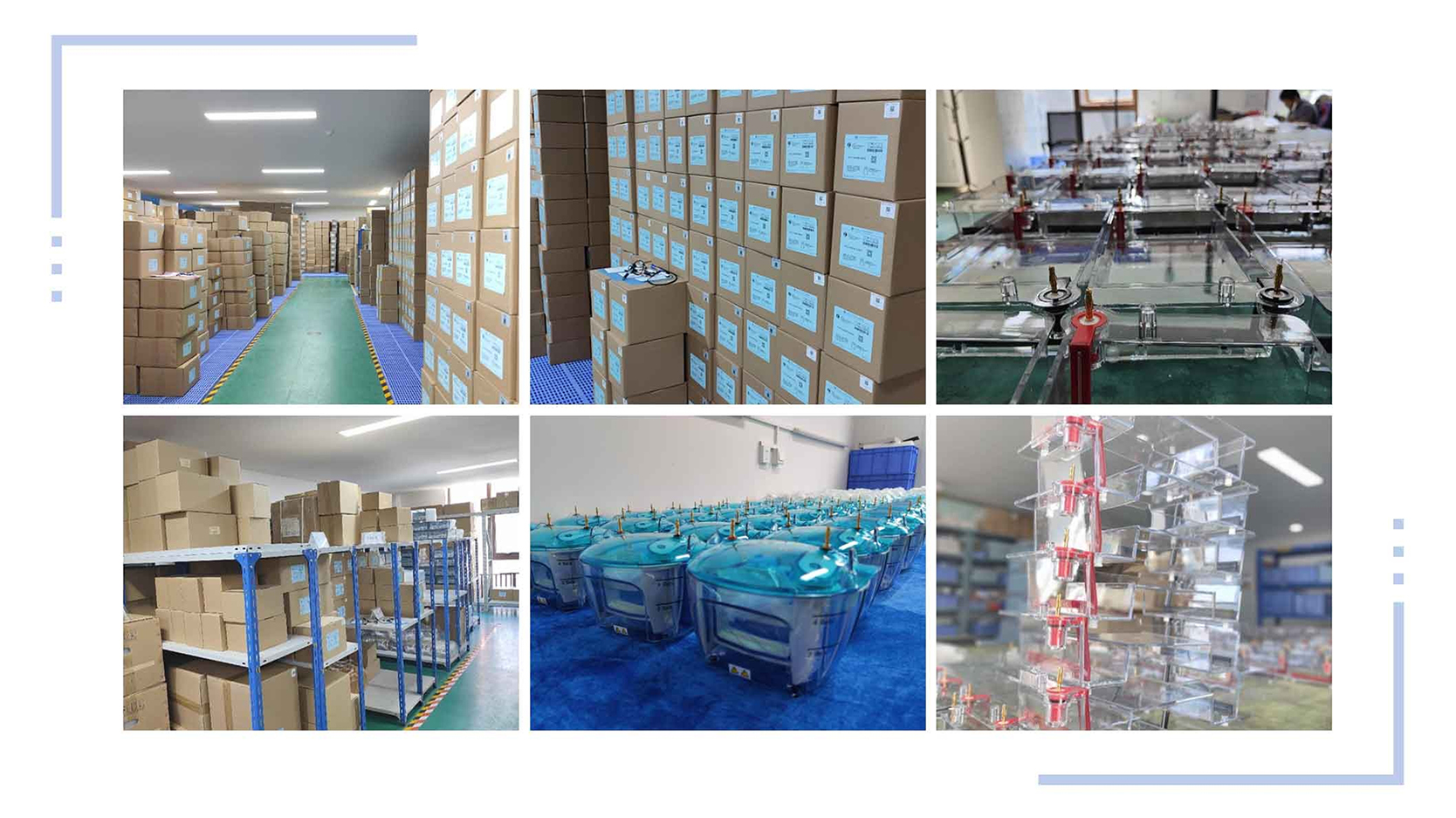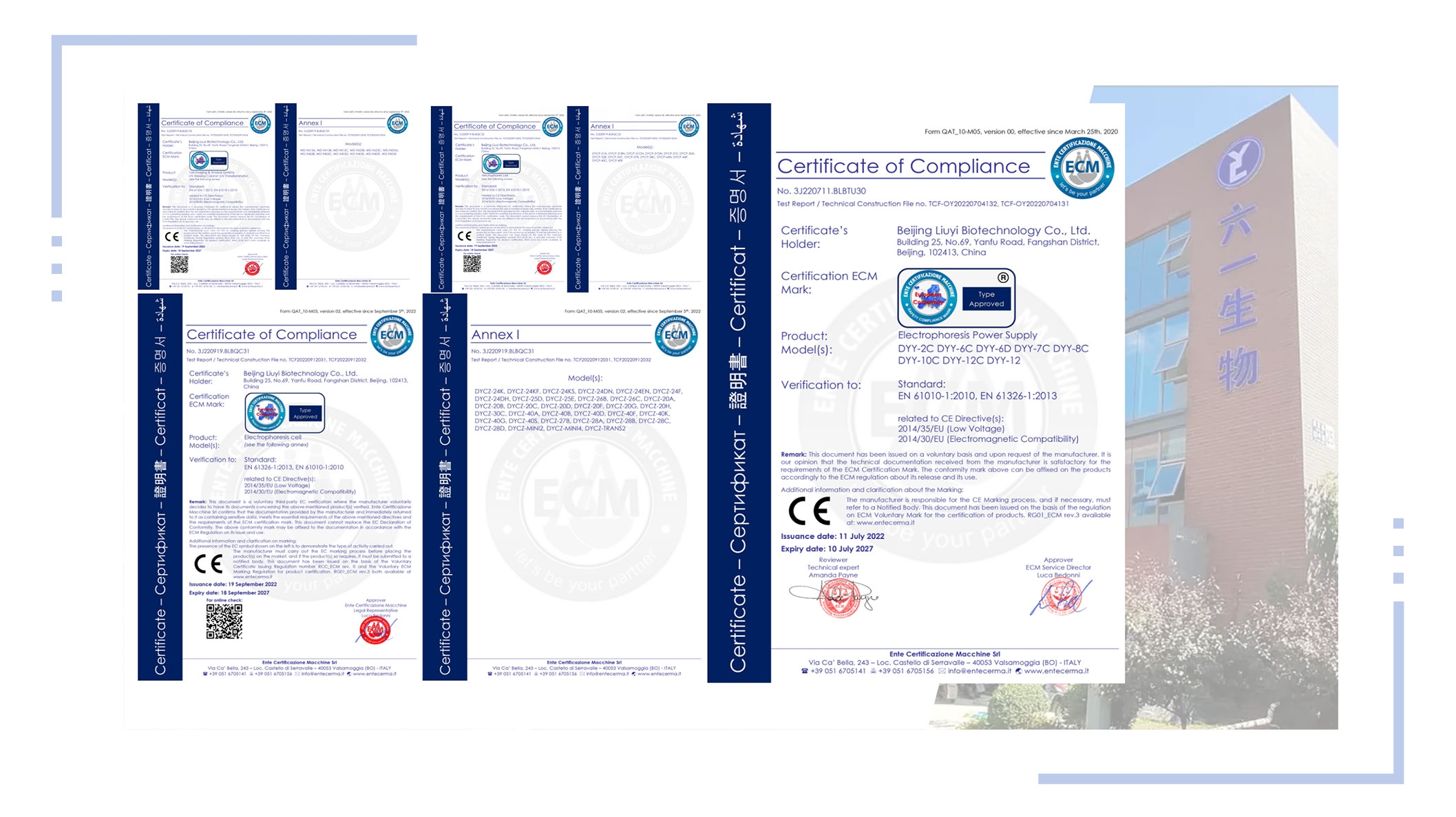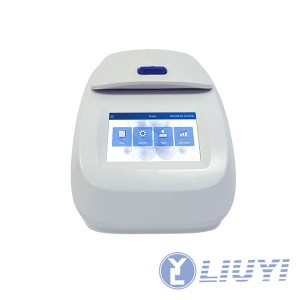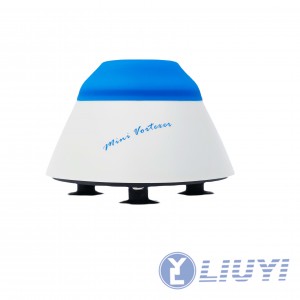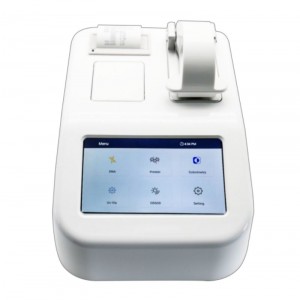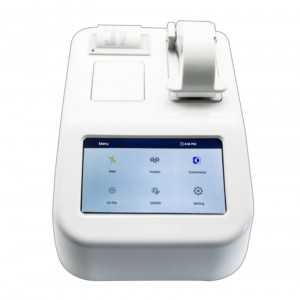MC-12K Mini High Speed Centrifuge
Specifications
| Model | MC-12K |
| Speed Range | 500-12000rpm (500rpm increments) |
| Max RCF | 9650×g |
| Timer | 1-99m59s (“Quick”function available ) |
| Acceleration time | ≤ 12s |
| Deceleration time | ≤ 18S |
| Power | 90W |
| Noise Level | ≤ 65 dB |
| Capacity | Centrifugal tube 32*0.2ml
Centrifugal tube 12*0.5/1.5/2.0ml PCR strips: 4x8x0.2ml |
| Dimension(W×D×H) | 237x189x125(mm) |
| Weight | 1.5kg |
Description
A Mini High-Speed Centrifuge is a laboratory instrument designed for the rapid separation of components in a sample based on their density and size. It operates on the principle of centrifugation, where samples are subjected to high-speed rotation, generating centrifugal force that drives particles or substances of different densities outward.
Application
Mini High-Speed Centrifuges find applications in various scientific and medical fields due to their ability to quickly and efficiently separate components in samples.
Feature
•Combination rotor for tubes of 0.2-2.0ml
•LED display, easy to operate.
•Adjustable speed and time during working. ·
•Speed/RCF can be switched
•The top lid is fixed with a push-button buckle, easy to operate
• “Quick” centrifugal button available
•Audio beep alarm & digital display when Error or mis-operation happen
FAQ
Q: What is a Mini High-Speed Centrifuge?
A: A Mini High-Speed Centrifuge is a compact laboratory instrument designed to rapidly separate components in a sample based on their density and size. It operates on the principle of centrifugation, using high-speed rotation to generate centrifugal force.
Q: What are the key features of a Mini High-Speed Centrifuge?
A: Key features include a compact design, interchangeable rotors for different sample volumes, digital controls for speed and time, user-friendly interfaces, safety features like lid-locking mechanisms, and applications in various scientific fields.
Q: What is the purpose of a Mini High-Speed Centrifuge?
A: The primary purpose is to separate components in a sample, such as DNA, RNA, proteins, cells, or particles, for further analysis, purification, or experimentation in fields like molecular biology, biochemistry, clinical diagnostics, and more.
Q: How does a Mini High-Speed Centrifuge work?
A: It works on the principle of centrifugation, where samples are subjected to high-speed rotation. The centrifugal force generated during rotation causes particles or substances of different densities to move outward, facilitating their separation.
Q: What types of samples can be processed with a Mini High-Speed Centrifuge?
A: Mini centrifuges are versatile and can process various samples, including biological samples like blood, cells, DNA, RNA, proteins, as well as chemical samples in microplate format.
Q: Can I control the speed and time of the centrifuge?
A: Yes, most Mini High-Speed Centrifuges come equipped with digital controls that allow users to set and adjust parameters such as speed, time, and, in some models, temperature.
Q: Are Mini High-Speed Centrifuges safe to use?
A: Yes, they are designed with safety features such as lid-locking mechanisms to prevent accidental opening during operation. Some models also include imbalance detection and automatic lid opening after the run is complete.
Q: What applications are suitable for Mini High-Speed Centrifuges?
A: Applications include DNA/RNA extraction, protein purification, cell pelleting, microorganism separation, clinical diagnostics, enzyme assays, cell culture, pharmaceutical research, and more.
Q: How noisy are Mini High-Speed Centrifuges during operation?
A: Many models are designed for quiet operation, minimizing noise levels in the laboratory environment.









